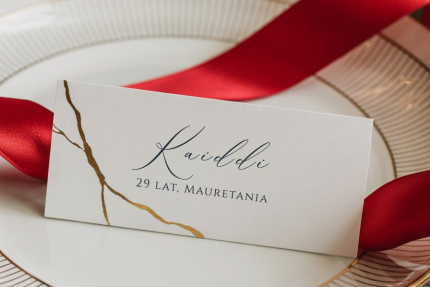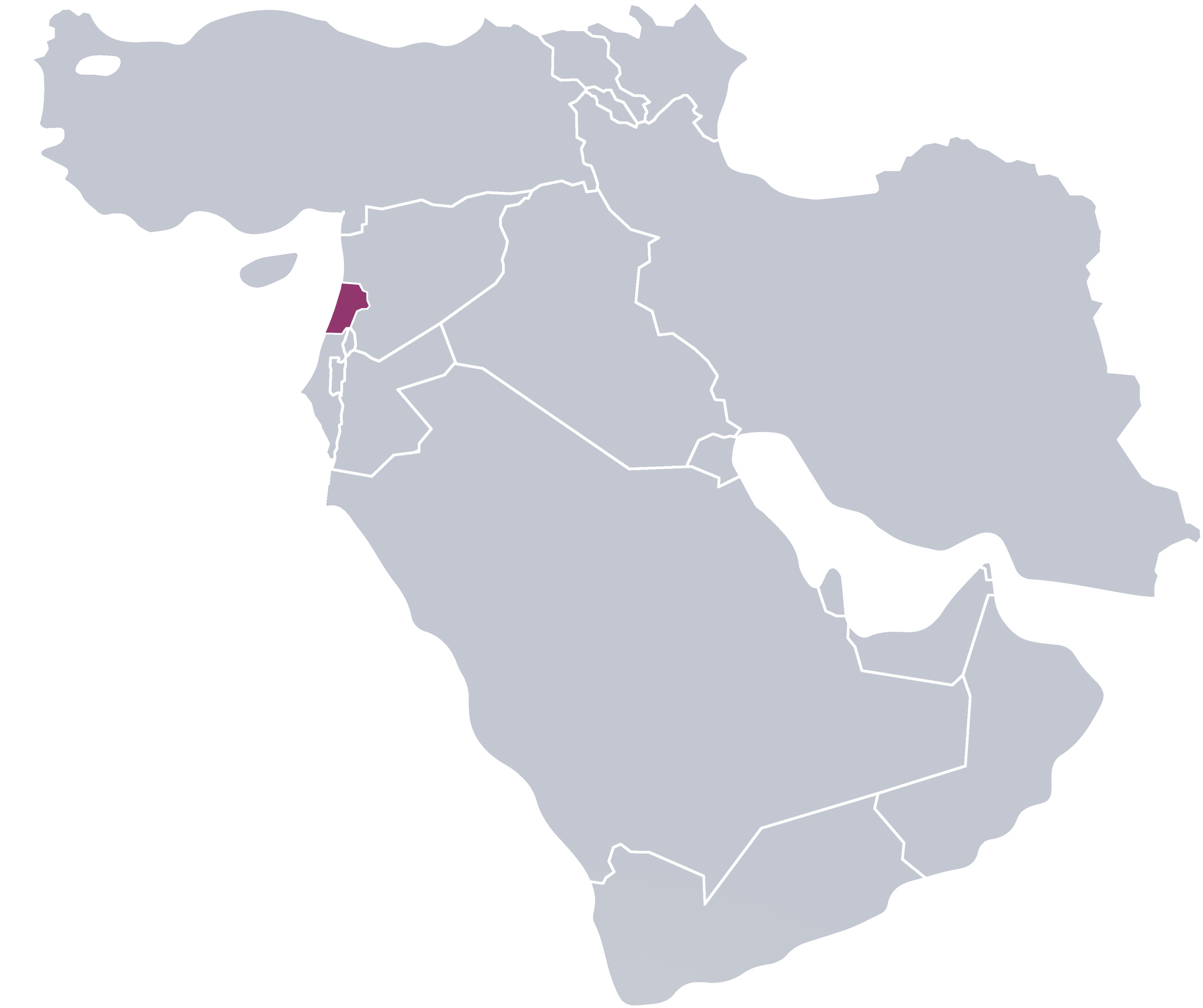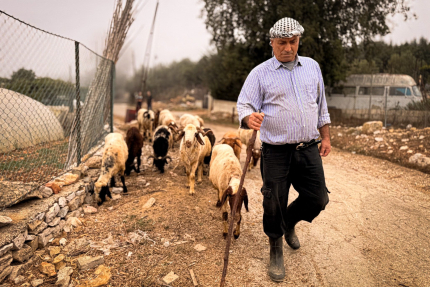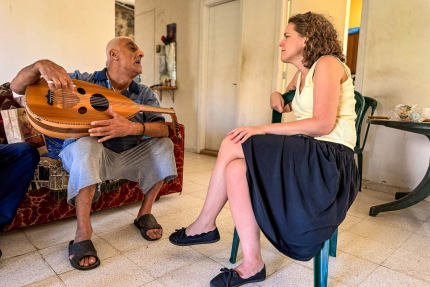Siham and Emad. Mother and son. United by love and suffering, divided by Lebanon. Siham loves her homeland; for Emad, it is the cause of all the misfortune in his life.
“I am a fish in the sea that is Lebanon,” says Siham, describing how much the country’s collapse has affected her situation. I meet them in a small apartment in Ajaltoun. Low ceilings, modest rooms. At first glance, you wouldn’t see the tragedy, because Lebanese people preserve their dignity and are ashamed of poverty. Until recently, they had little; now they have nothing. The economic collapse has dragged this family down as well. Siham holds no grudges and expects nothing from anyone. She prays to the Virgin Mary. Once she even dreamt of her. Since then, she knows she is not alone. When things are bad, she prays, asks for help—and an angel always appears.
“I’ve known Doctor Elias since he was three years old. He lived nearby. Even then he was exceptional,” she says, glancing at him with admiration. He is her angel. He brought a package of vegetables and three months’ worth of medicines. Siham takes quite a few pills—she has heart problems, so her mid-morning meal usually consists of a handful of colorful tablets. But after six surgeries, she is grateful to be alive, says her rosary, lights candles at her home altar, and complains about nothing. “I worry most about my children. I don’t need anything else but to see them happy.”
Siham’s sons are not happy. She has two, both still living with their parents. She also has a daughter—she is the only one who has started her own family and lives with her husband. In Lebanon, children leave the family home only after marriage. Emad was supposed to be next. Five years of engagement were cut short by the damn crisis. The young man had no job, no money, no prospects. And it happened. His world fell apart. The bride’s parents lost patience and convinced her to stop waiting for him. She quickly married someone else. Emad is still healing his broken heart. “I’ve lived half my life and I’ve done nothing, achieved nothing,” he says, tears showing his frustration.
“Lebanon is zero! I don’t want to be here. Only leaving can change anything. Even if the economy recovers, employers will hire fresh graduates, not thirty-five-year-olds with no experience. Lebanon is zero!” he repeats. The family budget matches the sentiment. Siham and her husband do not work. They don’t receive a pension, because in Lebanon such thing doesn’t exist. Their daughter helped as much as she could, but the crisis hit her too. When there’s nothing to pay rent, they don’t pay—let alone cover food. “One meal a day is a good day,” Siham confides. And though she is ill and should eat healthily, sometimes she eats nothing.
“I’m frustrated because I can’t repay my parents for everything they’ve given me. My role should be to make sure they have something to put in the pot,” says Emad.
Two generations, two perspectives. Mother and son are also battling two different kinds of illness: Siham’s physical, Emad’s—caused by disappointment—spiritual. Both see only one solution to Lebanon’s problems.
“Only a miracle can change anything,” says the son.
“Yes, only a miracle,” confirms the mother, glancing at the Virgin Mary on the altar.
P.S.
Thanks to you, through Doctor Harouni’s hands, Siham’s family receives the basics: food packages and medicines they need. Your support won’t solve all their problems. But we won’t let them go hungry or skip necessary treatment. We give them a chance to think about solutions on which their future depends.





